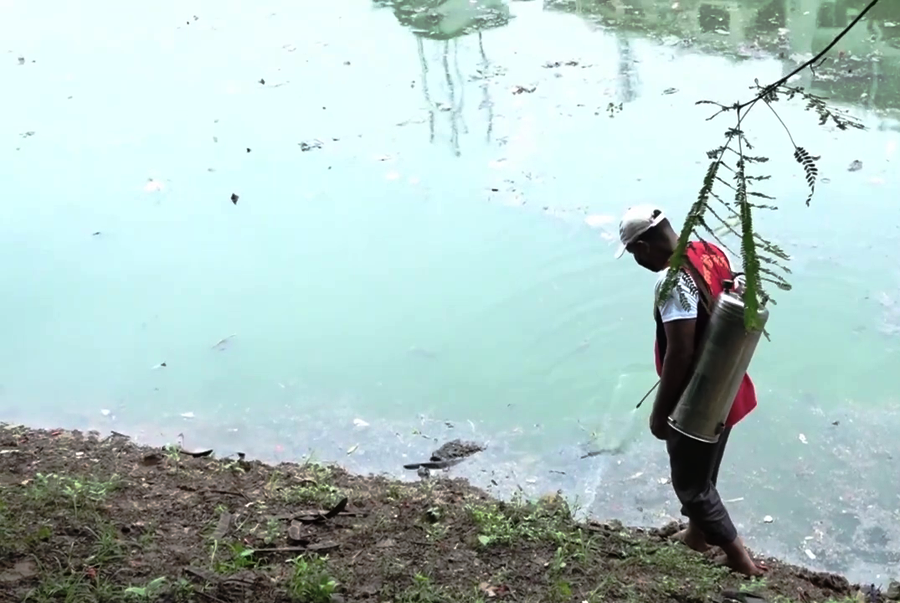
Published :
Updated :

The people in Bangladesh are familiar with the widespread adulteration of essential items like food and medicine. Spurious toiletries are also found abundantly in the market. For years, people have been consuming adulterated items and falling victim to many life-threatening diseases. The authorities concerned do launch anti-adulteration drives sporadically that usually leave no visible impact on the situation on the ground.
It is not just humans. Even insects inhabiting this land are being subjected to adulterated chemicals. A case in point is the chemicals used to kill the mosquito larvae in Dhaka city. In most cases, larvae survive the chemicals sprayed on them, become full-size vectors and bite humans and other animals merrily. It is beyond proof that the quality of mosquito-killing chemicals is compromised well before their application. Had the chemicals been effective, the mosquitoes would not have made the lives of the people so miserable.
There have been citizens' complaints about mosquito menace galore, but the city corporations have preferred to be indifferent. The top notches, at times, demonstrate their 'seriousness' in the task of eliminating mosquitoes. But, in reality, these are the moves aimed at playing to the gallery.
This year, dengue, a viral disease, is playing havoc across the country. Both the number of dengue cases and deaths have surpassed records. The numbers are feared to go up further during the next two and a half months.
The severity of the disease has prompted the Dhaka North City Corporation (DNCC) to do something different this time. It decided to use one particular type of bacteria --- Bacillus thuringiensis israelensis (BTI) --- to kill mosquitoes within its command area. The BTI is safe as it does not cause any harm to organisms except killing mosquito larvae, fungus gnats and black flies. Accordingly, the corporation gave a work order to a local firm named Marshal Agrovet Chemical Industries Ltd to supply BTI. Marshal Agrovet imported the bacteria and supplied samples of the same to DNCC. Things were on track until then.
But things turned sour when the DNCC people arranged a few demonstrations of the BTI use and newspapers carried details about the BTI and its import. The DNCC made available information that the bacteria were being imported from a Singaporean company named Best Chemical. But the Best Chemical in a Facebook post protested the news and claimed that they did not supply the BTI in question to Agrovet.
Media investigation has revealed that Marshal Agrovet has imported BTI from China, not Singapore. The firm reportedly is claiming that BTI in question has its origin in Singapore and the Chinese firm is a third-party supplier. Marshal Agrovet is also claiming that the name of the Chinese supplier was mentioned in the documents it had submitted in response to the DNCC tender.
Meanwhile, Best Chemical, as reported in a section of the press, is planning to sue Marshal Agrovet. The DNCC tender notice made it conditional that the bid winner will have to import BTI from the USA, any EU country, Singapore, India and Malaysia.
Thus, the BTI controversy has put the DNCC in an embarrassing situation. Its top notches are blaming Marshal Agrovet to shirk their responsibility in the BTI episode. If Agrovet's tender documents mentioned the name of the Chinese supplier, there will be a long battle over the BTI issue, it seems.
Amidst all the controversy, suspicion has surfaced about the efficacy of the sample BTI that has been made available to the DNCC. The corporation in the presence of independent entomologists should examine the efficacy of the BTI imported by the Marshal Agrovet and make an elaborate public statement on the issue.


 For all latest news, follow The Financial Express Google News channel.
For all latest news, follow The Financial Express Google News channel.